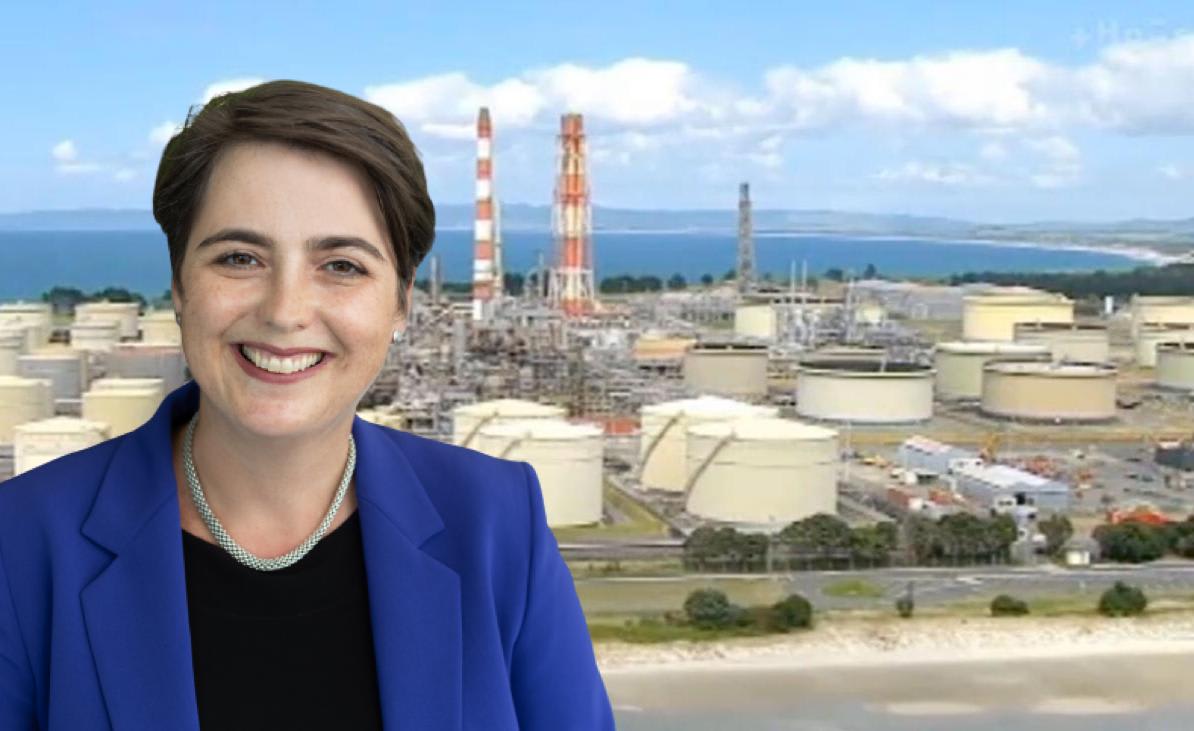NZ bolsters Emergency Oil Stocks Backed By Offer of Marsden Point Storage
Energy
New Zealand pre-ordered more oil stocks just before Russia invaded Ukraine, increasing government reserves this month – at a critical time.
The Government and New Zealand fuel companies together hold more than 1.7 million tonnes of oil in tanks, ship holds, and international ticket contracts acquired just in time for last week’s international action.
The Ministry of Business and Innovation told Newsroom last night that the new “tickets” were purchased at January prices, before world governments agreed to ban hoarding any more petroleum. “The International Energy Agency has asked member nations to delay rebuilding stockholding to help with its energy security measures,” a ministry spokesperson said.
Brent crude oil was selling for US$85 a barrel when the Government agreed the purchase in mid-January; two month later as Russian missiles rained down on Kyiv, the price had soared above $120 a barrel.
Back in mid-January, diesel was being imported at NZ 95c/litre and regular petrol at 93c; now the import prices are up to NZ$1.36 and $1.22 respectively – and pump prices have broken new records.
After agreeing last week to release 65,000 tonnes of oil as part of an international deal to support global fuel supply, the Government still holds 837,000 tonnes of oil in tickets contracts – effectively options to release that oil.
It agreed last week to release tickets to 184,000 barrels of crude oil held in Spain, and nearly 299,000 barrels of diesel held in the UK. This is unprecedented – the second such emergency release agreed by the International Energy Agency in a month – though some of the 31 member nations refused to take part.
Channel Infrastructure has shut down the Marsden Point oil refinery but its chief executive Naomi James told Newsroom Pro managing editor Jonathan Milne, on an episode of Pro Talks, that the company’s tanks are now available to store reserves of refined oil to tide NZ through the Ukraine crisis and beyond.

That means that this month, for the first time in a year or more, New Zealand is complying with its international agreement to hold more than 1,448,000 tonnes of oil in reserve – enough petrol, diesel and jet fuel to keep New Zealand running for 90 days.
The big fuel purchase, which nearly doubled the Government’s stocks this month, was timed as a response to the closure of the refinery.
“One of the changes with the transition is we’re less dependent on a single refinery than we were previously. And our supply will be coming from a range of of refineries around the Asian region.”
– Naomi James, speaking on Newsroom Pro Talks
But it is also timely because of the subsequent international deal to stop buying any more stockholdings. In the last two releases after collective action by the International Energy Agency, not all countries have released oil stocks, in spite of this being an authorised agency collective action. “Some declined because they have argued that the current emergency does not meet their legislative requirements for release of oil stocks,” the MBIE spokesperson said.
Fuel companies will now import New Zealand’s refined oil from a range of countries including Singapore, Korea and Japan, which James said would make the country less vulnerable to fuel shortages.
Channel Infrastructure – as the former refining company is now known – has already done deals with its biggest customers and shareholders, Mobil, Z Energy and BP. “We have signed agreements with the oil companies for 280 million litres total product storage,” James said.
Of that, 180 million litres is shared by the companies, and 100 million litres is private. “To put that into context, the 100 million litres private is equivalent to around four days cover for New Zealand, based on 2019, pre-Covid demand. That’s with capacity to increase available storage if it were required.”
“The shift is really that we’re sourcing it from a range of refineries around the world,” she said. “Our customers primarily source from refineries in Asia, to supply New Zealand. That was already occurring for about 30 percent of our fuel supply, even while we had the refinery operating. So one of the changes with the transition is we’re less dependent on a single refinery than we were previously. And our supply will be coming from a range of of refineries around the Asian region.”
James said it was not viable to refine New Zealand’s small quantities of light Taranaki crude oil, as the refinery was designed for much bigger runs of imported heavy crude oil.
WATCH PRO TALKS:
* Naomi James offers Marsden Pt oil tanks for national fuel reserve
* Economist Jarrod Kerr on why it’s hard to build out of the housing crisis
* The climate clock is ticking, say world’s top negotiators
* Rod Oram says NZ farmers shouldn’t feel picked on at COP26
* Ports chair Jan Dawson warns of supply chain delays at Christmas
* Covid advisor Rob Fyfe says ‘now’s not the time to pat ourselves on the back’
* NZ Rugby boss Mark Robinson on Ineos, Silver Lake and cost of rugby
Newsroom Pro Talks is made with the support of Spark.
Pro Talks is a live webinar series which looks at the crunchy part of big picture issues with the people whose decisions have a wider impact than just their own companies or enterprises. Hosted via Zoom, subscribers can watch our journalists interview industry leaders live and add their questions to the discussion.
To get access to future Pro Talks, subscribe here to Newsroom Pro.


